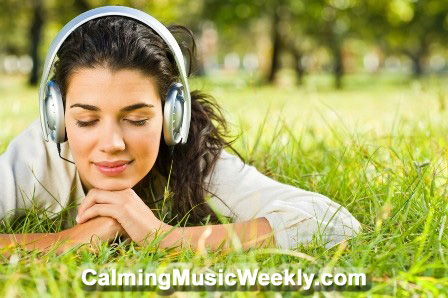Top 10 Benefits of Calming Music Part 1
In this two part blog post, I would like to explore the top 10 Benefits of Calming Music. It has been known for a long time – perhaps hundreds and hundreds of years – that music has healing qualities.
“Music soothes the soul” (Anon),
“Music calms the savage beast” (Anon),
“Music produces a kind of pleasure which human nature cannot do without.” (Confucius),
“Music can change the world because it can change people.” (Bono),
“Where words fail, music speaks.” (Hans Christian Andersen),
“Music speaks what cannot be expressed, soothes the mind and gives it rest, heals the heart and makes it whole, flows from heaven to the soul.” (Anon).
This is especially true with slow, relaxing music – often known as Calming Music. So, what is it, where can it be used and what are the benefits of calming music ?
Calming Music (sometimes known as Relaxation Music, or Meditation Music) is deliberately slow and relaxing. It often is paced at or around 75 beats per minute, which is approximately the same speed as the relaxed human heart. The human body tunes in to the sounds it experiences – for example, a person “fires up” when they hear fast and loud rock music (which is why fast and loud rock music is fantastic for dancing). In contrast, the human body slows down and relaxes when it hears calming music. Calming music is often made up of keyboard “wash chords” combined with beautiful yet simple intertwining melodies, harmonies and counter melodies and is usually instrumental (i.e. without vocals or lyrics). Often it can be made up of more traditional instruments such as the piano, acoustic guitar, violin, cello or flute. Sometimes it can have relaxing nature sounds mixed in and featured within a song, such as the sounds of waves, water, birds, wind and rain.
The benefits of calming music can include:
- Relaxation: Quite simply, calming music is mostly about relaxation. Allowing beautiful music to wash over you, to envelope your mind and maybe even to touch your soul can have a profound and relaxing effect. In much the same way as a “power nap” can help you fell refreshed, listening to slow and beautiful music can also help you feel relaxed and refreshed.
- Less Fatigue: According to various studies, people who listened to calming music were found to be less fatigued and more relaxed than people who didn’t. By stopping and concentrating on listening to the music, your body can rest – even if only for a few minutes – and thus you can feel refreshed.
- Best Sleep Therapy: If you have tried counting sheep, or relaxation therapies to deal with sleeplessness or insomnia without much success, why not listen to calming music ? Music is known to affect the human brain in many ways. Calming music can help make you relax and make it easier to go into deep and peaceful sleep more quickly…. and stay asleep for longer. It can also result in a better quality of sleep resulting you feeling more refreshed.
- Stress Relief: Calming music sends relaxing and peaceful messages to the brain. People who are facing feelings of stress, anxiety, worry or depression have found relief when they listen to calming music. Calming music is great for stress relief because it allows the listener to focus on the music and the feelings it invokes within their body, rather than concentrating on their worries. In essence, it can calm the noise and cease the chatter in your minds, which in turn can help you to forget your issues and relax.
- Better memory and improved cognitive function: or, to put it another way, calming music can help your brain to perform more efficiently and effectively. Sometimes known as “The Mozart Effect”, it has been shown that exposing small children (and teenagers and adults) repeatedly to slow music, such as classical music, or relaxing music can help them remember, can help them with their studies, can help them recall and can help them with complex thought processes.
Part 2 of this post will contiue to list the benefits of calming music.


